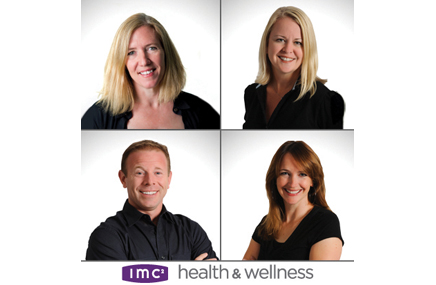imc2 health & wellness snagged AOR awards from Pfizer Lipitor EPBU and three other clients in 2011, which helped the Dallas-headquartered firm hold steady on revenue despite the tough decision to resign one of its largest brands. Though SVP and GM Bonnie Sayers won’t name the brand, she says it’s owned by a long-tenured client, and the overall relationship remains strong.
Chief strategy officer Hensley Evans notes “relationship era marketing principles” are key to understanding imc2 and its business.
“The core of relationship-era marketing is the idea that marketing needs to be purpose-driven,” Evans explains. “You have to have a purpose that’s true and is the basis of all activities. At our core, we have a purpose of advancing health. We seek clients that have shared values and purpose. Its sounds like a no-brainer, but consumer outcomes aren’t the primary priority for a number of brands.”
Confidentiality agreements prevent naming additional AOR wins, but the work is for consumer GI, oncology, and vaccine products. Evans says diversifying the portfolio is a priority.

“We want to apply our expertise to a portfolio that includes a lot of preventative programs,” Evans explains. “Our business development is much more focused on broader wellness and preventative. We’re in pitches for business like that now. We have more than 20 active projects in business development.”
Highlights last year include launching Pfizer’s “Lipitor for You” program and overall successfully promoting Lipitor through its loss of exclusivity.
About 85% of the agency’s work is digital, but Evans still stresses the importance of traditional channels.
“As we focus on initiatives that will have impact on shifting consumer behavior, many are happening in the digital space, but traditional marketing channels are critical—like ignition points to get people into programs,” Evans explains. “Traditional channels are still critical, it’s just a much smaller percentage. With ‘Liptor for You,’ I’d say the majority of our hours were spent building direct response channels in digital and IVR and mobile and social components, but print, TV and direct mail were driving people into the program.”
Headcount was consistent with 2010 (about 120), with four incremental hires. The majority resides in Dallas. Philadelphia and New York offices house about 30 combined. Sayers notes growing talent from within is a key strategy, and adds that being headquartered in Dallas hasn’t presented a recruiting challenge.
Ending 2012, Sayers expects a “slight lift” in revenue.
Evans cites a worldwide “crisis in health” as one of the biggest challenges ahead, and she feels healthcare marketers can make a positive impact.
“Many factors leading to the crisis in health are self-imposed and preventable,” Evans says. “As a healthcare marketing agency we can and should play a role in helping market healthier behaviors. How do we best leverage our expertise as marketers to help support sustainable health behavior change? It’s a huge challenge and tons of people are trying to solve it. I think marketers have an opportunity to be a big part of the solutions. We’ve been trying to persuade people to do this or buy that for a long time, so why not apply those skills to encouraging people to adopt healthier behaviors?”
From the July 01, 2012 Issue of MM+M - Medical Marketing and Media








